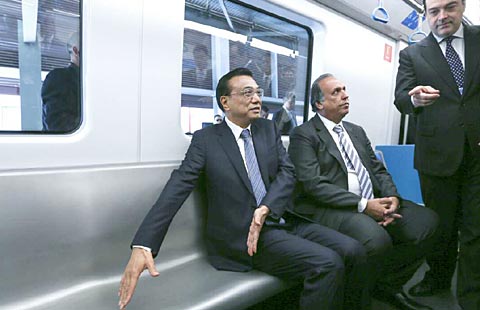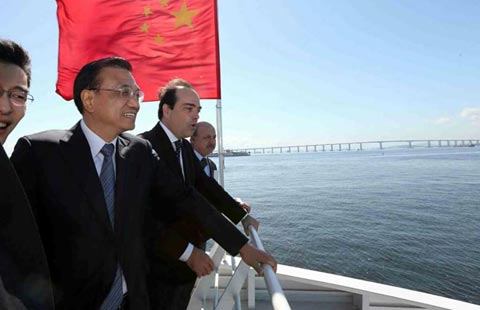OPEC turns down Chinese requests for extra oil
Updated: 2015-05-21 10:18
(Agencies)
|
||||||||
Needs of their own
Behind the stingier responses to requests for more oil lie mostly domestic factors. Saudi Arabia has traditionally been an exporter of crude oil but an importer of refined products.
That's changing. Its new 400,000 bpd Yasref refinery became fully operational in April, taking in Saudi heavy crude oil to produce and export petroleum coke, diesel and gasoline.
Saudi Aramco started up its Jubail refinery of the same size last year and also plans to build a third 400,000 bpd facility by 2018.
Other Middle Eastern producers such as the UAE's Abu Dhabi National Oil Co are also ramping up refineries, and the region is entering its peak burning season in which it uses more crude to generate power for air-conditioning.
"Over the summer, Middle East producers, particularly Saudi Arabia and Abu Dhabi, will have limited additional barrels for sale as new refineries continue their ramp up and increased summer burn absorbs supply," said U.S.-based research and analysis provider Pira Energy.
Supplies of heavy grades have also been tightened by the shutdown of two fields jointly operated by Saudi Arabia and Kuwait - the Khafji in October for "environmental issues" and the Wafra last week for maintenance amid a land dispute - taking nearly 500,000 bpd of oil out of production.
Asian customers have as well been wary of the quality of Iraq's new Basra Heavy grade and trying to switch to other crudes, according to industry sources.
Despite turning down some Asian requests, Saudi Arabia and its Middle East allies are still keen to meet as much Asian demand as possible.
The refusals come weeks after veteran Saudi oil minister Ali al-Naimi visited Asia and said demand for its oil was strong, but that Saudi Arabia's record oil output of over 10 million bpd was ready to meet the needs of its clients.
Naimi was the driving force behind the OPEC decision last November to keep output unchanged, refusing calls to cut production so as not to lose vital market share in Asia to rival producers, but triggering price falls of over 50 percent to under $50 a barrel by January.
While Saudi Arabia's currency reserves mean that it can live with lower prices for years, Deutsche Bank estimates that the government needs a price of over $100 to balance its budget.

 Culture Insider: Six things you may not know about Grain Buds
Culture Insider: Six things you may not know about Grain Buds
 Premier Li rides on new China-made train in Rio de Janeiro
Premier Li rides on new China-made train in Rio de Janeiro
 NYC's new One World Observatory offers sweeping views of Manhattan
NYC's new One World Observatory offers sweeping views of Manhattan
 Disney flagship store opens in Shanghai
Disney flagship store opens in Shanghai
 Sinkhole glimpse of magical nature
Sinkhole glimpse of magical nature
 Top 10 hottest destinations for investment in 2015
Top 10 hottest destinations for investment in 2015
 Jia Zhangke's movie screened at Cannes
Jia Zhangke's movie screened at Cannes
 Premier Li meets entrepreneurs on China-made ferry in Rio de Janeiro
Premier Li meets entrepreneurs on China-made ferry in Rio de Janeiro
Most Viewed
Editor's Picks

|

|

|

|

|

|
Today's Top News
China to provide twin boost to Brazil economy
China is a global leader in renewable energy: Panel
OPEC turn down Chinese requests for extra oil
Beijing concerned as US accuses 6 Chinese of economic spying
Lenovo, Alibaba in 'smart' alliance
Li urges firms to introduce more world-class products
China, Brazil launch new era of economic relations
China premier 'savior' to Brazil government: newspaper
US Weekly

|

|







